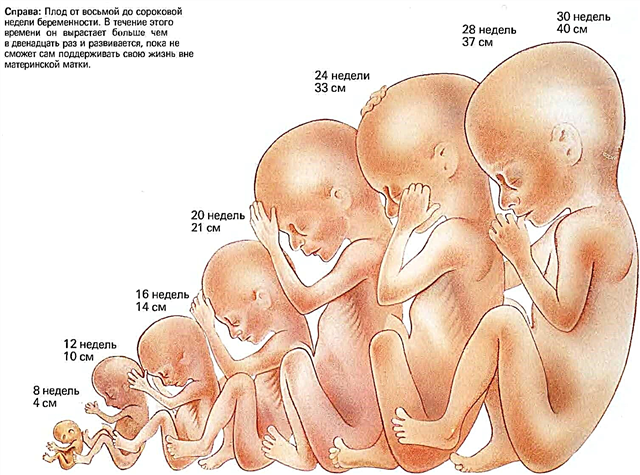The main difficulties in caring for babies in the first three months are intestinal colic and bloating. Young parents are not always able to understand the reasons why the baby cries. If the mother notes a stool delay in a baby during breastfeeding at 2 months, the woman does not find a place for herself, not knowing how to help.

Mom and baby
Features of constipation in a child at 2 months
Most often, problems with stool in children of the first half of life are invented by their parents. The reason for this is the ability of infants to almost completely assimilate breast milk. There is simply no biological material left for the formation of feces. The lack of a chair in the diaper is a big concern for parents, although in most cases there is no cause for concern.
Note. Premature babies and babies with a diagnosed developmental disorder of the nervous system may have functional disorders in the intestines, which causes constipation.
Allowable number of bowel movements in 2 months
For breastfed babies, the absolute norm is one bowel movement every 5 days. There is no need to worry about the lack of feces in the diaper if the child's mood is not spoiled. It is important to pay attention to the following symptoms:
- the abdomen is swollen, hard on palpation;
- the baby is anxious, cries often and nervously;
- the child refuses to eat, and while sucking nervously throws the breast;
- crying often stops immediately after the baby releases gas;
- toddler lags behind in growth and weight gain;
- each act of defecation is painful (the rectum is injured);
- the feces are thick, their movement through the intestines is slow, difficult, painful.
If these symptoms are accompanied by a prolonged absence of stool, you should seek medical help. It is best to do this as soon as possible to minimize the suffering of the baby and to allow bowel movements to be less painful.
Types of constipation in children
Depending on the cause of occurrence, constipation is divided into:
- functional (violations of the muscle tone of the intestine - spasms in some of its areas can prevent the passage of feces);
- alimentary, the cause of which is a lack of fluid in the body, which affects the formation of feces;
- medication, which develops after taking bonding drugs, both by the child and by the nursing mother.
Important! The symptoms of any type of constipation are not limited to the absence of stool for several days. Other disorders in the work of the body must also be present.
The main causes of constipation at 2 months
The first reason why a baby has no stool for several days is the almost complete assimilation of breast milk. Most often, breastfed babies empty their bowels once every two days.
In bottle-fed babies, there are less situations when parents suspect constipation in a two-month-old baby. In contrast, artificial people have more frequent bowel movements, usually during feeding. If a caring mother decides to prepare the mixture not according to the instructions, but to put more dry contents, the child may have digestive problems.

Artificial feeding
Many mothers, in the absence of their own milk, consider adapted milk formulas to be chemistry that does not bring benefits to the child. Such women get out of the situation with the help of cow, less often goat milk. It is this feeding that causes constipation in a baby at 2 months.
Attention! Adapted milk formula is the closest in composition to breast milk feeding. Neither cow nor goat's milk can be compared in terms of safety and nutrient content with adapted milk formula.
The most dangerous reason why constipation can occur in a 2 month old child is pathology in intestinal motility. This diagnosis occurs in 8-10% of children. The problem arises from the fact that some part of the intestine works in the opposite direction, that is, the muscles in this segment prevent the passage of food. Ultimately, the pathological part of the intestine, like a telescopically folding antenna, is adjusted inside the adjacent healthy segment, where the process of splitting itself by the intestine begins. Symptoms of pathology are:
- the baby has no stool for three days, provided that the stool was regular before;
- painful swollen belly;
- after about three days after the absence of stool, the appearance of diarrhea of the form of raspberry jelly.
Important! This problem is easily corrected with surgery. The child is hospitalized, prepared for an operation, as a result of which a malfunctioning section of the intestine is removed.
Actions for constipation in babies at 2 months
When constipation appears in a child who is breastfed at 2 months, it is worth first assessing the general condition of the baby. If his mood is not alarming, the stomach is soft and painless, there is no cause for concern. Otherwise, you should pay attention to the air quality that prevails in the room where the child lives. During the summer months, when the ambient temperature rises above 25˚C, children, even those who are breastfed, need supplementation.
The lack of fluid in the body affects the quality of the stool. From a lack of fluid, hard feces can form, the passage of which through the intestines of the infant is very difficult and slows down. Therefore, if, under these circumstances, constipation occurs in a 2 month old baby, the first thing to do is to drink regularly, replenishing the lack of fluid.
Babies who are dominated by a mixed type of feeding or completely artificial, based on cow or goat milk, need to be urgently transferred to an adapted milk formula. Guarding the mixture does not provoke the formation of hard lumps of feces, like cow's or goat's milk.
Attention! Home methods aimed at irritating the rectum with a bar of laundry soap or the tip of a mercury thermometer have nothing to do with common sense and cannot help if a child has constipation - 2 months is the age when it is better to see a doctor than experiment with the health of the baby.
From non-medicinal products, you can use a decoction of raisins. The microelements included in the composition of dried grapes increase intestinal peristalsis, soften stool and facilitate bowel movements. If it is difficult for stool to exit, the child's anal ring can be lubricated with baby cream or petroleum jelly. This will help reduce trauma to the anus, after which it is imperative to adjust the baby's diet to prevent relapse.

Raisin decoction
Prevention of constipation in a child at 2 months
So that there is no question, what to do with constipation in a baby at 2 months old, you should feed the baby in accordance with age needs:
- up to 6 months no complementary feeding is required for babies;
- in case of a shortage or absence of breast milk, use an adapted milk formula, which should also be selected according to age and prepared strictly according to the instructions, observing the dosage;
- in hot months to give the child clean drinking water, excluding the lack of moisture in the body.
Mother's milk contains substances obtained from food eaten by a nursing mother. Therefore, if a woman, fearing intestinal colic in an infant, eats only bread and drinks water, milk will not contain the required amount of fiber, due to which the intestinal muscles normalize. To prevent constipation in infants, a nursing mother should eat a full and varied diet. A happy mom who enjoys food is one of the most important ingredients for a child's health.



